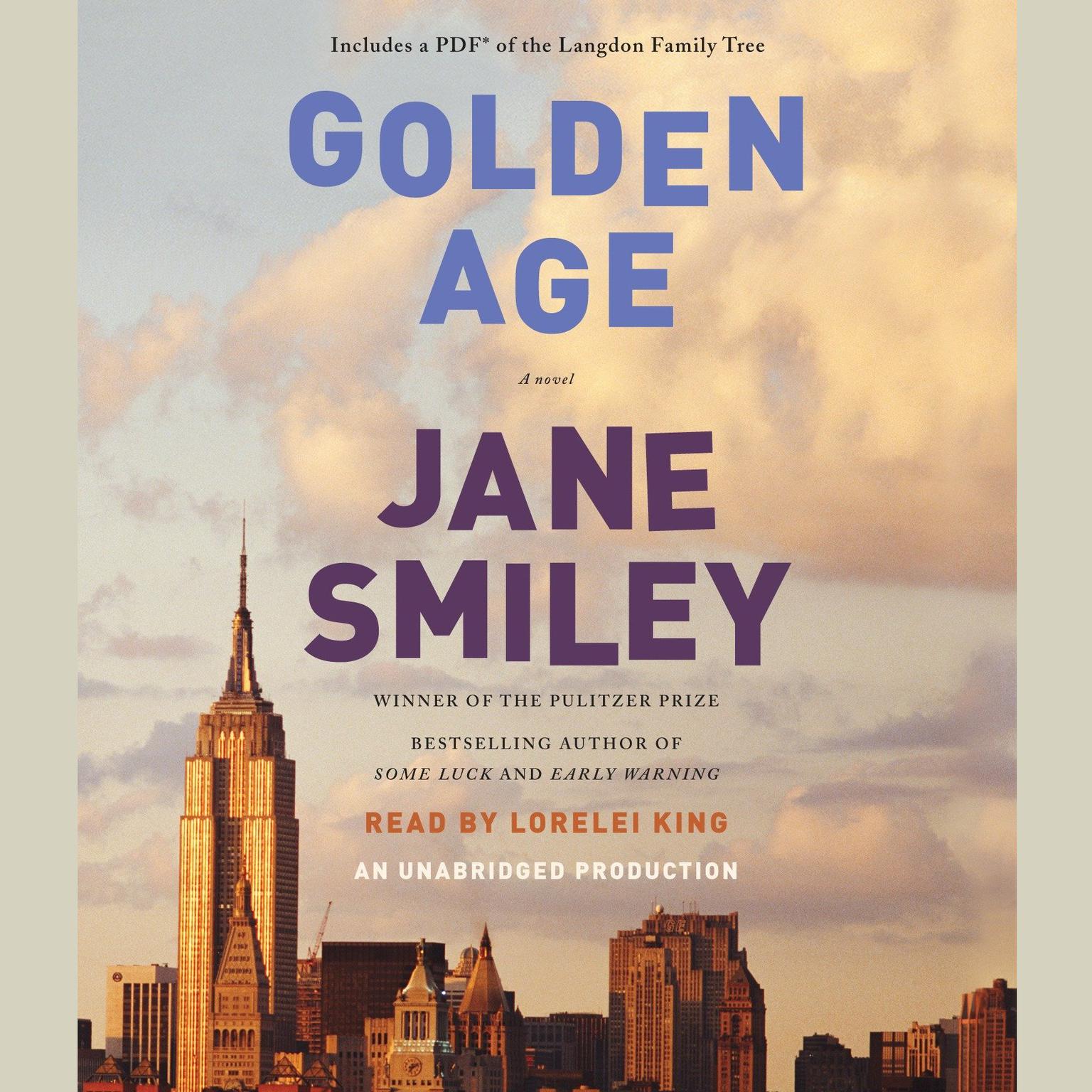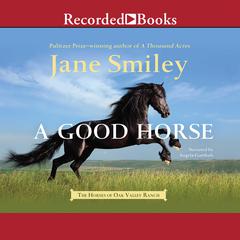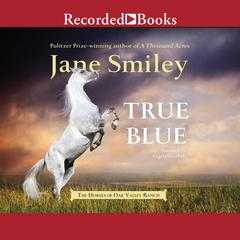 Play Audiobook Sample
Play Audiobook Sample
Golden Age: A novel Audiobook
 Play Audiobook Sample
Play Audiobook Sample
Quick Stats About this Audiobook
Total Audiobook Chapters:
Longest Chapter Length:
Shortest Chapter Length:
Average Chapter Length:
Audiobooks by this Author:
Publisher Description
From the winner of the Pulitzer Prize: the much-anticipated final volume, following Some Luck and Early Warning, of her acclaimed American trilogy—a richly absorbing new novel that brings the remarkable Langdon family into our present times and beyond
A lot can happen in one hundred years, as Jane Smiley shows to dazzling effect in her Last Hundred Years trilogy. But as Golden Age, its final installment, opens in 1987, the next generation of Langdons face economic, social, political—and personal—challenges unlike anything their ancestors have encountered before.
Michael and Richie, the rivalrous twin sons of World War II hero Frank, work in the high-stakes world of government and finance in Washington and New York, but they soon realize that one’s fiercest enemies can be closest to home; Charlie, the charming, recently found scion, struggles with whether he wishes to make a mark on the world; and Guthrie, once poised to take over the Langdons’ Iowa farm, is instead deployed to Iraq, leaving the land—ever the heart of this compelling saga—in the capable hands of his younger sister.
Determined to evade disaster, for the planet and her family, Felicity worries that the farm’s once-bountiful soil may be permanently imperiled, by more than the extremes of climate change. And as they enter deeper into the twenty-first century, all the Langdon women—wives, mothers, daughters—find themselves charged with carrying their storied past into an uncertain future.
Combining intimate drama, emotional suspense, and a full command of history, Golden Age brings to a magnificent conclusion the century-spanning portrait of this unforgettable family—and the dynamic times in which they’ve loved, lived, and died: a crowning literary achievement from a beloved master of American storytelling.
From the Hardcover edition.
Download and start listening now!
"Ambitious, absorbing, rich in detail . . . In this final installment of her Last Hundred Years trilogy, Smiley wraps up the story of an Iowa farm family, with branches stretching to California and Chicago and New Jersey and Washington, D.C. Golden Age opens in 1987 [and] ends in a fraught 2019. Smiley allows plenty of room to incisively explore both sides of the increasingly bitter American political divide. She builds an unsparing portrait of a country seared by change and tempered by humanity, a place that tests and tries the Langdons, but never quite breaks them . . . Golden Age flows with the nuances and rhythms of everyday life, with time passing steadily, through births and deaths, triumph and tragedy. Smiley’s prose is precise but spare; she doesn’t need histrionics to wring your heart or make it sing. She only needs a few simple sentences . . . The book’s structure allows her to hone in on the historical events through the eyes of people about whom we care, and she builds unexpected joys and alliances into their remarkable and ordinary lives . . . Smiley lays out the dangers, daring us to ignore them at our own peril. But Golden Age is not downbeat; it puts our existence into perspective . . . In the wild, unpredictable, precious ride of life, we can still find moments to savor."
— Connie Ogle, Miami Herald
Quotes
-
The thought of writing a series that spans a century with each chapter representing a year might sound daunting to some authors. Jane Smiley, however, is not just any author . . . Golden Age takes readers from 1987 up to 2020, lending a prophetic eye to the world beyond the pages. There’s much to admire: Smiley’s attention to detail in each and every year; her knowledge of politics, environmentalism, and genetics; her humor; her stripped back prose. On the farm, descriptions of the land put you right in the heart of a place that is rapidly disappearing . . . Smiley chronicles 20th-century life like few have, with the same scope and fastidiousness of Phillip Roth, Saul Bellow, and John Updike. After reading about five generations of a family, wars, financial crises, global warming, and the rise of the technological age, it makes you stop and think about how much has changed—and yet how little has changed at the same time [in] this place we call the US.
— Dana De Greff, Miami New Times -
[In] Smiley’s ambitious project of covering 100 years in the life of an Iowa family, the Langdon offspring travel across the country, across the world, even. Members of three different generations find themselves fighting in wars overseas. There are marriages that last and unions that fail. There are sublime moments of peace and contentment and sudden tragedies that knock the survivors (and readers) back a step. But death in a family is inevitable, especially over the lifetimes of many characters . . . The power of memory and nostalgia fuels the trilogy.
— Connie Ogle, Miami Herald -
Jane Smiley has such a clear, strong, American voice, there is no mistaking her work for any other. She’s my favorite kind of writer, mingling vivid plots with ingenious characters with subtle, nuanced interiority. She writes with such generous heaps of humor and grief, you feel a little richer and keener for reading her books.
— Diana Abu-Jaber [as quoted in the Miami Herald] -
For those who’ve read the first two novels in Jane Smiley’s engrossing Last Hundred Years trilogy, the publication of the third, Golden Age, will make you want to shirk your obligations, sink into your favorite reading chair, and discover what happens to members of the captivating Langdon family whose story Smiley began on their Iowa farm in 1920 . . . You probably could have guessed that, given that this volume covers 1987 to 2020, a span during which the children of Walter and Rosanna Langdon reach the age of statistically expected mortality. Smiley focuses especially on the way the wars, political controversies, terrorist attacks, financial crises and environmental disasters of these years affect the Langdons . . . The Langdon farm, now owned by Walter’s grandson Jesse, once again serves to ground the story and prompt some of Smiley’s most moving writing . . . Frank [Langdon] progresses even further in Golden Age, renewing affections with his long-estranged wife in some of the loveliest passages in this novel . . . Smiley’s trilogy is a significant achievement, animating American history through the Langdon family story, better than a textbook can.
— Jenny Shank, The Dallas Morning News -
Bold, satisfying . . . insightful. Smiley is superb when it comes to summing up a character’s hopes and insecurities. . . She is an endlessly sensitive explorer of liberty and the abandonments it entails. It will be fascinating to see where she directs her prodigious imagination now. Golden Age is a welcome reminder of her enormous talents as a storyteller.
— Jonathan Lee, Financial Times (UK) -
Smiley's omniscient narrator is a bit like [a] private detective, documenting the Langdon clan. From 1920 to [2019], she darts into their lives, beginning with Walter and Rosanna Langdon settling a farm in Denby, Iowa, and end[ing] in a frighteningly believable near future. Smiley, a Pulitzer Prize winner, has been described as one of America's most important writers, and her Hundred Year project, a literary historical panorama [that] might at first seem like a study of how families expand and contract, becomes something bigger, more complex . . . The power of Smiley's project ultimately lies in her ability to situate her readers here, on the edge of a new world.
— Christi Clancy, Milwaukee Journal Sentinel -
Smiley reacquaints us with the affections and rivalries of the Langdons, and returns us to the heart of the family— the loved and loathed Iowa farm, [whose] fate is a persistent worry. War, politics, and environmental disasters are all sidebars to the principal subject of Golden Age: Can love thrive? Even in the 2019 world, with rivers running dry and topsoil reduced to dust, marriages occur, babies are born, and passings are deeply mourned. In Jane Smiley’s world, love exists . . . She keeps the interwoven plotlines moving forward with her beautiful clean sentences and fully realized characters.
— Natalie Serber, San Francisco Chronicle -
To most novelists, the prospect of writing a trilogy that spans an entire century might have seemed outrageously ambitious, if not downright foolhardy. But Jane Smiley is not most novelists. The Pulitzer Prize-winning author didn't simply rise to the multiple challenges of the multigenerational family saga. In the trilogy—which concludes with Golden Age—Smiley tells not only the story of an American family, but also the story of America itself. Set on a farm in Iowa and, as various members of the Langdon clan spread out, throughout the country and the world, The Last Hundred Years finds the family buffeted by change, including war, economic ups and downs, shifts in the culture and practice of farming, politics and a variety of other factors. At the same time, the way the characters interact with history is indivisible from the way they interact with each other, which is inextricably bound up with family dynamics and the mystery of human personality.
— Kevin Nance, Chicago Tribune -
With Golden Age, Smiley wraps up her sweeping, cumulatively absorbing American epic—as expansive and ambitious in its way as Balzac's Human Comedy and John Updike's Rabbit quartet . . . References to historical benchmarks anchor the novel in time. But what captivates are the unfolding lives of characters who share DNA and a fraying connection to their agrarian roots . . . Smiley’s plot is a marvel of intricacy that's full of surprises. Her view of old age and, especially, old love, are unexpectedly sweet. [The] trilogy demonstrates repeatedly that most lives are a combination of improvisation and serendipity, good luck and bad. With issues such as corruption, climate disruption and racism blighting the country's horizon, her characters wonder if the golden age is behind them. But Claire, the last surviving child of Walter and Rosanna Langdon, reflects on the bright spots of her 80 years, [making] her realize that ‘all golden ages, perhaps, were discovered within’ . . . A satisfying finale to a monumental portrait of an American family and an American century.
— Heller McAlpin, Los Angeles Times -
Thoroughly radiant . . . Anyone will marvel at the author’s tremendous talent. This installment, like those that preceded it, possesses numerous references of literary, historical, and mythological significance, layered beneath the chronicle of an upwardly mobile American family. Across an entire century and five generations, every beautifully crafted scene is astonishingly devoid of repetition. There is not a single stock character. Characters evolve throughout their lifetimes in ways that are gratifying; they are mostly long-lived, and mostly redeemed . . . The concerns that patriarch Walter Langdon faced back in 1920 were those of a man who lived close to the soil. But by the time the 21st century dawns, weather worries aren’t just for farmers anymore. Real-life hurricanes, droughts, and derechos provide compelling evidence of climate change, giving the title of Smiley’s saga—now officially known as the Last Hundred Years—an ominous ring. [But] life goes on for the Langdons . . . The term Golden Age may well refer to this stage of Smiley’s career, for her trilogy represents a remarkable achievement that deserves to be kept close at hand—along with a flashlight, generator, and canned goods, just in case.
— Sandra Levis, Pittsburgh Post-Gazette -
A fitting conclusion to the trilogy . . . The boon of Smiley’s writing is her unforgettable characters and unexpected relationships.
— Stephanie Sendaula, Library Journal -
It’s been almost 25 years since Smiley won the Pulitzer prize for A Thousand Acres. With The Last Hundred Years trilogy, she surely confirms her place alongside Roth, Updike and Bellow as one of the truly great chroniclers of 20th-century American life. Golden Age is breathtaking in its expansiveness, and there is an epic quality to the trilogy as a whole. But Smiley is equally compelling on the domestic and familial. The undeniable craft of Golden Age is the way in which the macro and the micro are inextricably linked. We experience the changing face of 20th-century America through the lives of characters whose defining emotional moments Smiley describes with such economy of language that the dissolution of a marriage, or regrets about a life lived, can be affectingly described in a page or two of prose . . . It is testament to Smiley’s storytelling that some of the [characters’] deaths are shocking and unexpected. Other deaths creep through the pages with a poignant sense of inevitability. And it’s this that makes reading The Last Hundred Years trilogy such a powerful, moving and rewarding experience: a rare chance to witness five generations of a family unfold.
— Hannah Beckerman, The Guardian -
Smiley’s Last Hundred Years trilogy narrates the chronological history of one Iowa farm family over five generations. In the process, it also tells the story of America: how most Americans abandoned the farm for college, war and city life; how a few stayed behind, struggling to hold onto the land; how each ensuing generation accumulated learning, sophistication, power and wealth. Smiley continues to strike a fine balance between the history of an era’s 'great ideas' and the history of its everyday life. The Langdons lose family member[s], but the particulars of personal suffering do not overwhelm the intellectual arguments—and vice versa . . . It’s a small miracle how much ground Smiley covers and how much she knows: about biochemistry, horses and genetics, but also medieval literature, financial instruments and especially politics. The motifs of nature that Smiley has so carefully constructed are in clear danger from capitalism run amok . . . [But] there are more Langdons on the scene, and therein Smiley plants the seeds of possibility for America.
— Valerie Sayers, The Washington Post -
The rich but plainspoken third volume in Smiley’s Last Hundred Years trilogy follows Some Luck and Early Warning to complete the multigenerational account of an Iowa farm family. Golden Age begins in 1987, with the Langdons scattered across the country, mostly far from their native fields. They struggle through virtually every low point in contemporary history . . . What most threatens the land—and the Langdon family’s ‘golden age
— are not rising temperatures, but good old-fashioned betrayal. -
Golden Age completes Smiley’s trilogy by bringing the Langdon family to the present, and beyond. As the book opens in 1987, [they] are back at the Iowa farmstead to meet a new addition to the clan, but the bigger event that year is the stock market crash . . . The first generation of Langdons survived drought and the Depression, the next prospered in the postwar boom. But now, money takes center stage, moving faster, enriching some, bankrupting others. The title, readers come to suspect, is an ironic reference to the Gilded Age, another era of boom, bust, and shady dealings; Smiley moves into the future to complete the trilogy’s century span . . . What lingers with readers is her detailed depiction of the kaleidoscopic geometries of family, as the Langdons spiral out from Iowa into the larger world, endlessly fracturing and coming back together.
— Publishers Weekly -
Warmly affecting . . . Smiley is a skilled storyteller. The story progresses year by year from 1987 through an imagined 2019 . . . Newly introduced characters are welcome additions to Smiley’s vibrant gallery of fully fleshed characters, with Henry and Claire remaining the most ruefully appealing of the siblings we first met in Some Luck . . . Despite dire events, the narrative energy of masterfully interwoven plotlines always conveys a sense of life as an adventure worth pursuing.
— Kirkus
Awards
-
A New York Times Editor’s Choice
Golden Age Listener Reviews
Be the first to write a review about this audiobook!
About Jane Smiley
Jane Smiley is the author of numerous novels, including A Thousand Acres, which was awarded the Pulitzer Prize, as well of works of nonfiction and books for young adults. A member of the American Academy of Arts and Letters, she has also received the PEN Center USA Lifetime Achievement Award for Literature. In 2001 she was inducted into the American Academy of Arts and Letters.
About Lorelei King
Lorelei King is an award-winning narrator and an actress of stage, film, and television. She also works extensively in radio, including award-winning voiceover work. She has narrated more than eighty audiobooks, earning eleven AudioFile Earphones Awards and twice winning the prestigious Audie Award for Best Narration.























